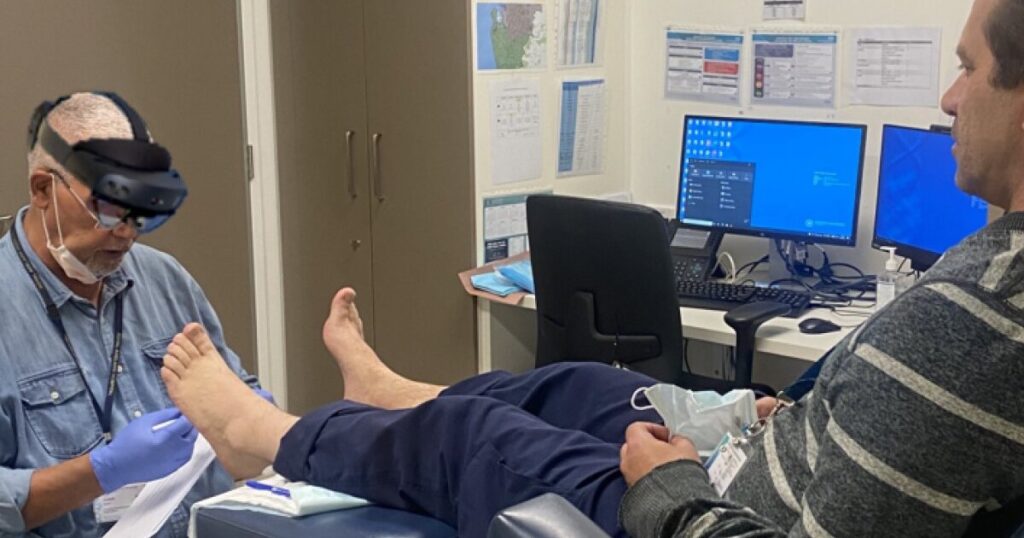
Mixed-reality glasses used for remote leg and foot ulcer diagnosis
Mixed-reality smart glasses have been developed for remote assessment of leg and foot wounds of people with diabetes and vascular diseases living in regional and remote areas.
Researchers from the University of Adelaide invented software for a mixed-reality headset that enables doctors in the city to “see through the eyes” of rural health workers who are assessing and treating patients’ leg and foot ulcers in real-time.
“The specialist will be able to direct the rural health professional, who is wearing mixed-reality glasses, to different aspects of the wound with the help of holographic projections and, in future, even see what the wound looked like at a previous telehealth appointment for easy comparison,” explained Dr Zygmunt Szpak of Insight Via Artificial Intelligence, a commercial partner involved in the development of the smart glasses software.
Backed by A$2.27 million ($1.5 million) from the federal government’s Medical Research Future Fund, the smart glasses are expected to be rolled out within the next five years. A trial is also targeted from 2024 at select locations across South Australia.
Australian researchers claim first to develop method for assessing OSA exposure
Researchers from the University of Western Australia School of Psychological Science have developed what could be the first algorithm in the world that can estimate the time a person has had obstructive apnoea.
Called OSA-Onset, the algorithm was established using a range of health variables, including body mass index, weight gain, snoring, diabetes, excessive daytime sleepiness, low mood and biological sex.
“Greater exposure time to a risk factor is often connected to poorer health,” said Dr Michelle Olaithe, but until recently, no method had been established to check how long a patient had been affected by OSA. “As OSA is related to — and possibly the cause of — other illnesses, having a method to estimate its onset could help assess the risk of related diseases,” she added.
Dr Olaith claimed OSA-Onset will support future studies in identifying people who had experienced prolonged OSA, examining the effects of its long-term exposure, as well as explaining poor response to therapy.
Bp Omni goes beta
Best Practice Software has started the beta testing of its new cloud-based practice management and clinical solution in New Zealand.
Previously known as Project Titanium, Bp Omni is designed to streamline and simplify the daily operations of healthcare providers.
After six years of R&D, the solution is now being tested with a physiotherapy practice with plans to launch its beta with five more practices over the coming months, according to a media release.

